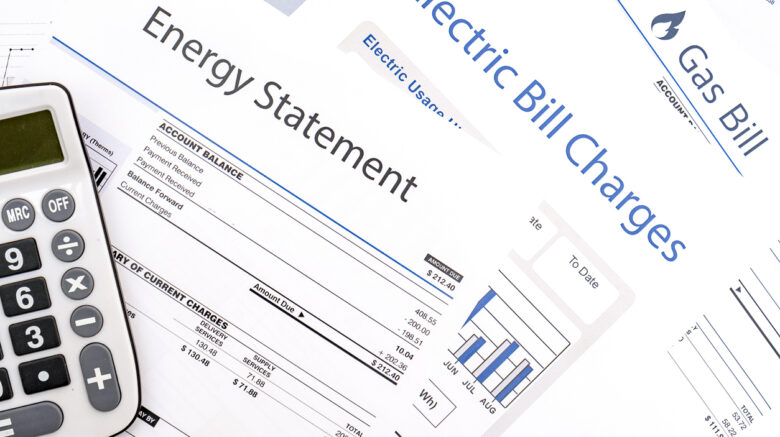Summary
- The utilities the the CA Public Utilities Commission (CPUC) are proposing to charge most residential ratepayers a Utility Tax of $24 per month. The tax is uncapped; utilities have said they intend for it to increase to $70/month or more. Even a $24/month Utility Tax would be twice the national average.
- This mandatory Utility Tax would increase electricity bills on four million households who live in apartments, condos, and small homes, have rooftop solar, or work to conserve energy.
- Solar Rights Alliance and more than 250 other organizations have called on the state Legislature to Stop the Big Utility Tax. Thousands of individual Californians have done the same through phone calls to their representatives.
- In response, more than twenty state legislators introduced bills to cap the Utility Tax (AB 1999 and SB 1326). Both bills are dead: AB 1999 was not allowed for a single vote by Assembly Speaker Robert Rivas, while SB 1326 was voted down by lawmakers in its first committee.
- But the window to stop this Utility Tax has not fully closed. In politics, where there’s a will, there’s a way. The Legislature is in session until August. They have plenty of moves left on this chess board. Even though AB 1999 is dead, lawmakers still have four months to stop the big Utility Tax through a different means.
- So long as there is a window to stop the big Utility Tax, we intend to fight it every step of the way. We’ve seen how public outrage can change the situation, often against the odds and to the surprise of everyone.
Please call both your Assemblymember and Senator today and tell them they MUST find a way to stop the big Utility Tax this year.
What happened: In 2022, the state lawmakers mandated a new, uncapped Utility Tax without any public discussion
- In 2022, at the last minute and without any public discussion, the California Legislature passed AB 205, a large “budget trailer bill” that included a little-noticed provision for a Utility Tax. Here is how each legislator voted.
- AB 205 removed the existing $10 per month cap on Utility Taxes and mandated that a Utility Tax be imposed on all ratepayers. This new Utility Tax will have unlimited potential to grow.
- This Utility Tax would apply to all residential ratepayers of PG&E, SoCal Edison, and SDG&E, including customers of CCAs.
- AB 205 requires the Utility Tax to be based on income.
Note: The utilities and regulators refer to this as a “fixed charge”. We’re calling it a “Utility Tax” because it both fits the dictionary definition of a tax and is more straightforward.
What’s being proposed: a big, uncapped Utility Tax
- The CPUC has proposed a $24 per month Utility Tax. Utilities have proposed A Utility Tax as high as $70 per month. The average national utility Utility Tax is $10 per month.
- You will pay this Utility Tax no matter how little energy you use.
- The Utility Tax is uncapped. This means $24/month today could rise to $70 per month tomorrow.
- Electricity rates (per kilowatt hour) would be lowered somewhat in exchange for paying the Utility Tax, but that would only be temporary. Rates will continue to increase.
- You can see all the Utility Tax proposals at this CPUC website.
Proposed Utility Tax would increase utility bills for millions of people who do not consume a lot of energy from the grid.
This includes people who live in apartments, condos, and small homes, solar users, and pretty much anyone else who works to conserve energy.
- High utility taxes penalize households that do not use a lot of energy.
- Even the $24/month Utility Tax proposal would increase utility bills for millions of Californians who happen to live in an apartment or small home, or have invested in solar panels or other forms of energy conservation.
- That’s terrible for both working communities and the environment!
- See detailed analysis of Utility Tax impact
What do the utilities and other Utility Tax proponents say?
- Utility Tax proponents claim that the Utility Tax will reduce electricity bills for low-income people and incentivize all ratepayers to switch from gas to electric appliances and electric cars.
- They are not telling you the whole story.
- Households receiving California Alternate Rates for Energy (CARE) or Family Electric Rate Assistance Program (FERA) would only see small and temporary decreases in their monthly electricity bills. However, millions of other working and middle income households that don’t qualify for government assistance will see their electric bills increase.
- With respect to “electrification”, none of the Utility Tax proposals would actually lower bills for consumers who switch from high efficiency gas appliances to electric ones. In fact, it will still be $40 to $400 cheaper annually to stick with gas.
- There are many, better, proven ways to make electricity more affordable for lower-income Californians and incentivize people to switch appliances.
- See detailed analysis of the original proposals and updated analysis of the CPUC proposal.
Proposed Utility Tax entrenches the problem of high electricity prices
- Electricity prices are too high because of two things. First, the cost of building and maintaining long distance power lines. Second, the cost of liability when those lines spark wildfires. (Source: CA Public Utilities Commission, Utility Costs and Affordability of the Grid of the Future)
- A Utility Tax does not fix that underlying problem. It simply shifts around who pays what for an overly expensive and unreliable system. It rearranges deck chairs on the Titanic, so to speak.
- What’s worse, a high Utility Tax would mean there’s no incentive for the utilities to reduce those costs. A Utility Tax would entrench the root problem and force residents to foot the bill for more expensive and dangerous long distance power lines.
- The solution to stabilizing the high cost of electricity is to reduce spending on long distance power lines and other large-scale grid infrastructure. This can be accomplished by reducing the amount of electricity we need from the grid. That includes more conservation, efficiency, rooftop solar, and batteries. More rooftop solar and batteries could reduce the cost of the grid by $120 billion over the next thirty years. Energy efficiency has saved ratepayers more than $100 billion over the past 20 years.
Legislation to Stop the Big Utility Tax was killed by legislative leaders.
- In response to public outrage over the Utility Tax, more than twenty state legislators introduced bills in early 2024 to cap the Utility Tax (AB 1999 and SB 1326).
- Both bills are now dead: AB 1999 was not allowed for a single vote by Assembly Speaker Robert Rivas, while SB 1326 was voted down by lawmakers in its first committee.
But lawmakers have plenty of chess moves left. Where there’s a will, there’s a way.
- But the window to stop this Utility Tax has not fully closed. In politics, where there’s a will, there’s a way.
- The Legislature is in session until August. Even though AB 1999 is dead, lawmakers still have four months to stop the big Utility Tax through a different means.
- This could include amending another bill, using the “budget trailer bill” process (which is how they created this mess in secret to begin with).

